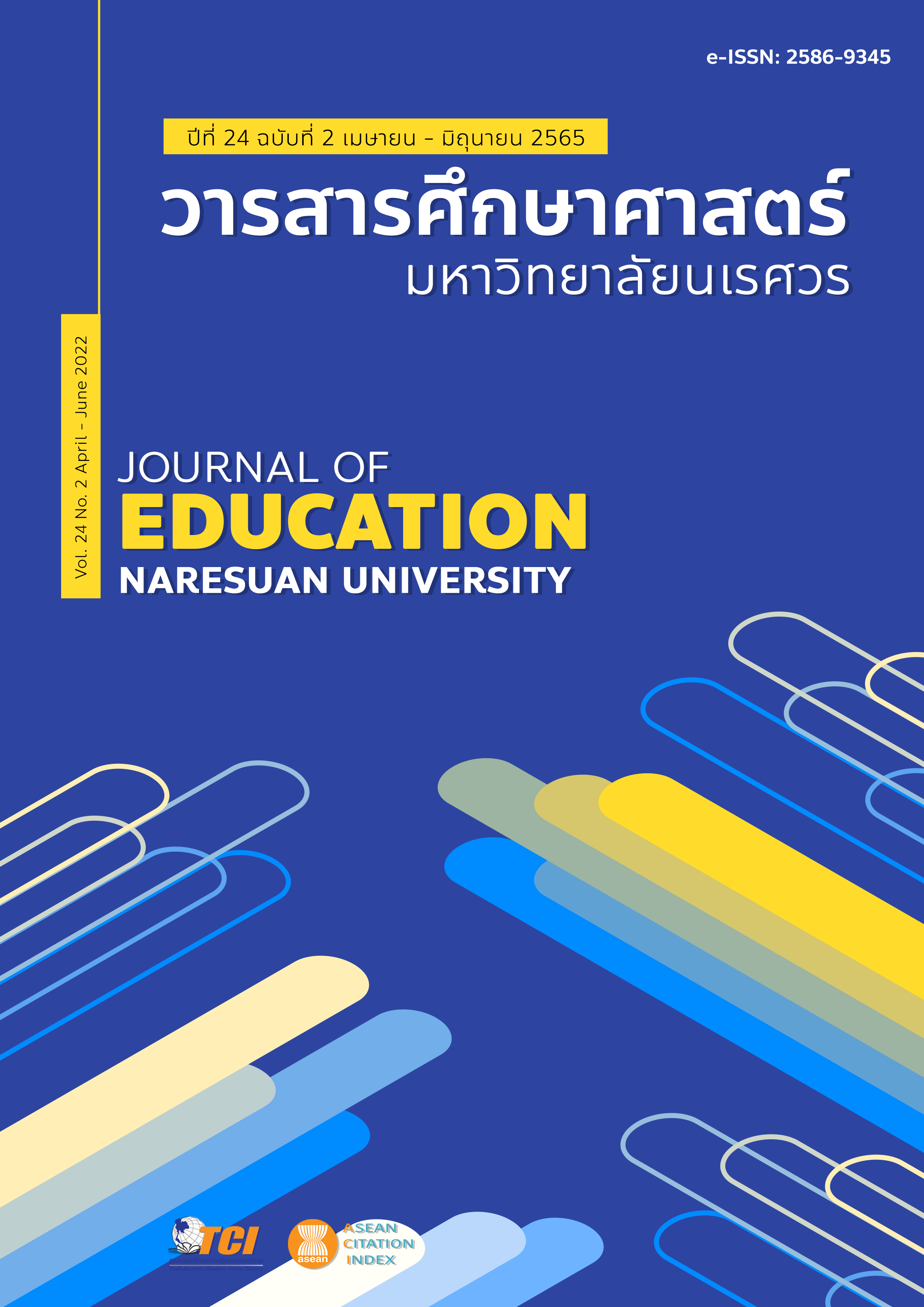DEVELOPMENT OF A COMPETENCY-BASED APPROACH IN THE THAI CLASSICAL MUSIC CURRICULUM FOR LEARNERS IN FOREIGN COUNTRIES
Main Article Content
Abstract
This qualitative study aims to 1) examine problems and necessities of the Thai classical music curriculum for learners in foreign countries, and 2) develop a competency-based approach in the Thai classical music curriculum for learners in foreign countries. The data collection includes document analysis, interviews, and focus group discussion. The data were analyzed using content analysis and the results were presented in descriptive format. The findings show that problems and necessities of the Thai classical music curriculum for learners in foreign countries include eight aspects: 1) attitude towards Thai classical music learning, 2) reading Thai music notation and memorizing repertoire, 3) understanding lyrics and perceiving musical value, 4) duration of studying, 5) annual teacher change,
6) appropriate location and musical instruments, 7) learner levels, and 8) teacher skills. The developed curriculum consists of four Thai classical music performance competencies: 1) Knowledge acquisition and preparation in Thai classical music performance: basic components and history of Thai classical music instrument, 2) Thai classical music performance: instrument exploration prior to performance, posture, performing Thai classical music rhythmic instruments, and performing solo and in an ensemble, 3) reading and recording Thai classical music notation: knowledge about Thai classical music notation, and 4) maintaining Thai classical musical instruments: taking care of selected Thai classical music instruments properly. In addition, the four competencies are divided into six levels, sequencing the content from basic to advanced.
Article Details

This work is licensed under a Creative Commons Attribution-NonCommercial-NoDerivatives 4.0 International License.
The owner of the article does not copy or violate any of its copyright. If any copyright infringement occurs or prosecution, in any case, the Editorial Board is not involved in all the rights to the owner of the article to be performed.
References
Amatayakul, P. (1996). Summary of history and development of music in Thailand. Nakornpratom: Research Institute for Languages and Cultures for Rural Development.
Buasri, T. (1988). Curriculum theory: Designing and developing. Bangkok: Thanarach Publishing.
Bunnag, P., Jongkol, S., & Anchaleenukul, S. (2005). Concept of standard and quality of education from the reign of King Chulalongkorn the Great until the end of absolute monarchy 2411-2475 B.E. Bangkok: Office for National Education Standards and Quality Assessment (Public Organization).
Chuppunnarat, Y. (2018). Development of Thai Music Education Curriculum and Teaching in Thailand. Bangkok: Chulalongkorn University Press.
Chuppunnarat, Y., Laovanich, V., & Laovanich, M. (2018). The status and approach of music education resource management in Thailand’s institutions: Ministry of Culture’s policy formulation and implementation. Bangkok: Ministry of Culture.
Dechakan, S. (2010). Thai music cultural transmission of Amphawa community in Samutsongkhram province: A case study of Thaibanleag ensemble (Master’s thesis), Bangkok: Chulalongkorn University.
Faculty of Education, Chulalongkorn University. (2017). Volunteer Thai teacher in foerign countries with the Promoting Thai Language and Culture at Thai temples in Washington D.C. 2561 B.E. Project. Retrieved from https://inet.edu.chula.ac.th/ctlc/ index.php/feed-news/280-2561-24
McClelland, D. C. (1973). Test for Competence rather than for Intelligence. American Psychologist, 28, 1-14.
Office of the Higher Education Commission. (2010). Thai classical music criteria 2553 B.E. Bnagkok: Parbpim.
Promsukkul, M. (2018). Raising children with music. Bangkok: Preaw Puen Dek Publishing.
Promsukkul, M. (2011). Acquisition of absolute pitch in Thai traditional music traning (Doctoral dissertation). Nakornpathom: Mahidol University.
Richard, J. C. (1983). Listening and comprehension: Approach, design, procedure. TESOL Quarterly, 17(2), 219–240.
Suttachit, N. (2004). Thai classical music education history. Bangkok: Chulalongkorn University Press.
Sutthirat, C. (2013). Curriculum development: from theory to practice. Bangkok: Weeprint.
Taba, H. (1962). Curriculum development theory and practice. New York: Harcourt, Brace & World.
Thammawiharn, S. (2002). Thai music (3rd ed). Bangkok: Chulalongkorn University Press.
Trehub, S. E. (2006). Infants as musical connoisseurs. In G. McPherson (Ed.), The child as musician. Oxford: Oxford University Press.


